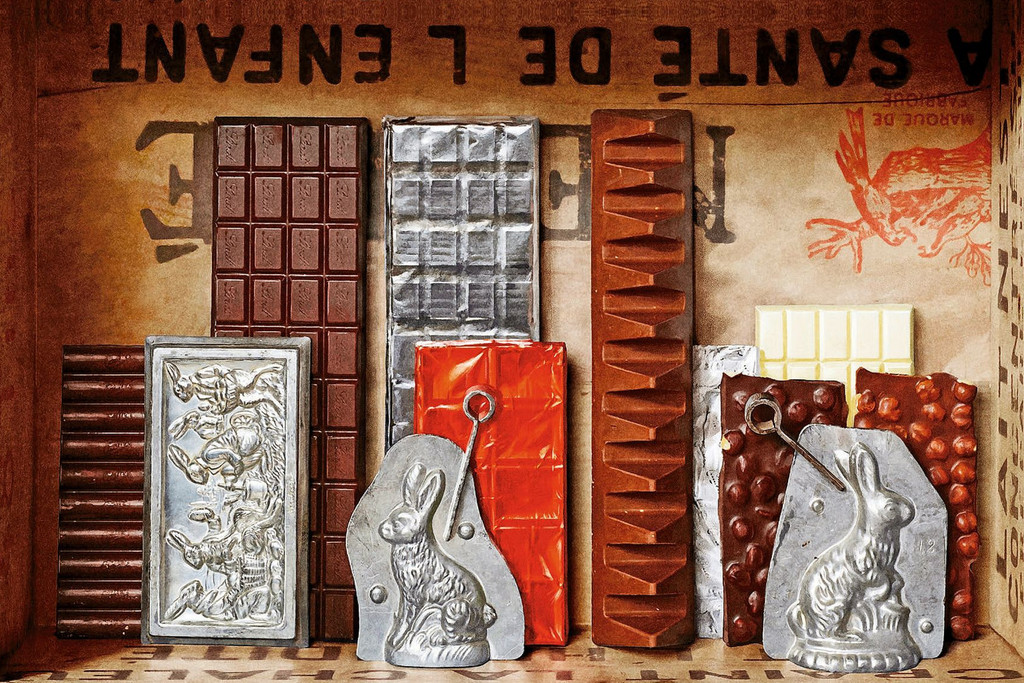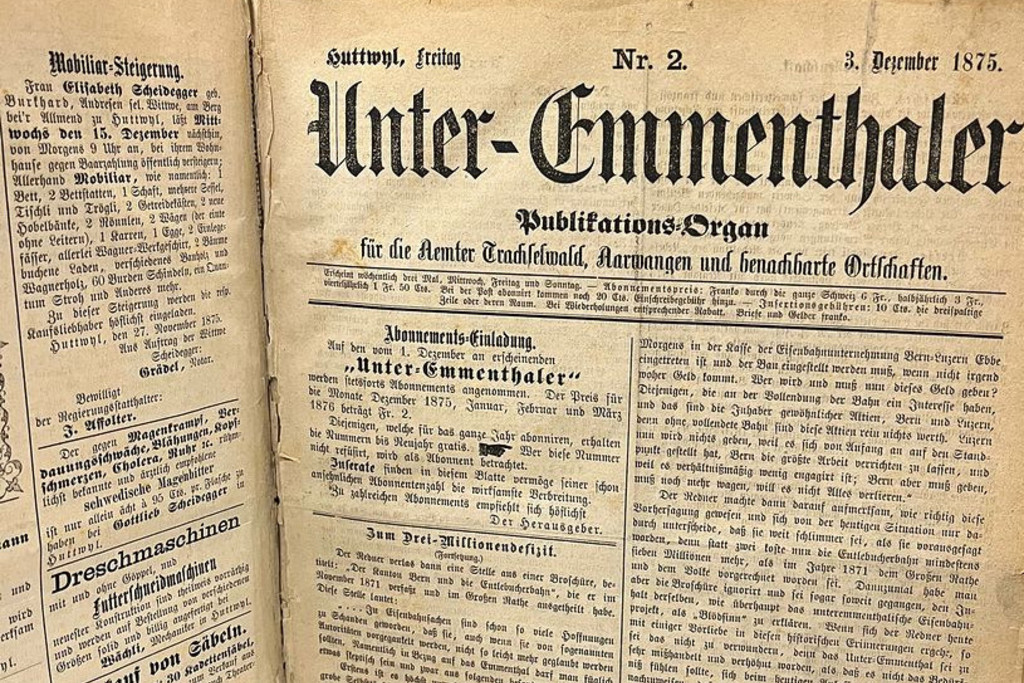In a tobacco store in Geneva, the shopkeeper has placed a range of electronic cigarettes (Chinese, as are most) and liquid refills on the counter. The 10 ml containers are from the Swiss brand InSmoke. Do they contain nicotine, the substance that most e-cigarette users consume to replace the traditional cigarette? The owner of the corner shop thinks so, indicating that he has been selling nicotine products for months. However, the sale of nicotine in this form is banned. Upon checking, it turns out that his goods do not contain the substance after all.
This episode illustrates the bizarre situation that prevails in Switzerland with regard to electronic cigarettes. These rechargeable devices have been flourishing since 2013 but sales have been curbed by the ban on nicotine, which is nevertheless permitted in Europe. In a country that is home to the head offices and factories of the world’s biggest cigarette manufacturers, such as Philip Morris and Japan Tobacco International, this step, which is the result of a Federal Council ordinance on foodstuffs, has enraged those promoting vapour cigarettes. “This ban is absurd,” seethes Stefan Meile, the owner of InSmoke. His company, which is based in Thurgau, produces liquids for e-cigarettes and distributes them nationwide. He adds, “In terms of public health it’s a disaster because the people using e-cigarettes are all former smokers who need nicotine to avoid a relapse.”
A puzzling ban
“The ban on the sale of e-cigarettes containing nicotine is puzzling because traditional cigarettes, which are probably more harmful, are permitted,” points out the BASS institute , which has been commissioned by the Federal Office of Public Health (FOPH) to carry out a study in relation to the new law on tobacco products (LPTab) which will be debated this year. Why authorise the sale of cigarettes whose dangers have long been proven (the social and healthcare cost in Switzerland stands at 9.9 billion Swiss francs, according to a study cited by BASS)? And on the other hand ban the release of nicotine through a device whose usage is less dangerous, even if the effects of smoking vapour have not been measured over the long-term? The BASS institute estimates that the legalisation of nicotine-containing e-cigarettes would reduce the proportion of smokers in the population by 2.1 %.
As a result, the Federal Council authorised the principle of nicotine in e-cigarettes in its dispatch on the LPTab. In order to protect consumers, it has attached caveats to this decision, such as banning advertising and the sale of the product to minors. However, e-cigarettes should escape the taxes levied on tobacco.
A liquid vapour manufacturer launches an attack on the government
To survive, independent traders are setting up shops in neighbouring countries from where customers can order liquid nicotine. Some have decided to fight back, including the Thurgau-based manufacturer InSmoke. This company has been circumventing the ban since June 2015. The cantonal chemist visited its premises in October. The official did not close down the factory but requested advice from the Federal Food Safety and Veterinary Office (FSVO).
The FSVO issued its response in November: “Until the future law on tobacco enters into force, the marketing and sale of these products in Switzerland will remain prohibited.” Current legislation is not adequate to ensure full health protection and the marketing of these products therefore cannot be authorised, according to the FSVO. The ban remains in place. In the event of a referendum against the future law on tobacco, it could continue until 2020.
The counter-attack by Philip Morris with its heated tobacco
While a small proportion of Swiss smokers are switching to electronic cigarettes, the tobacco industry is flexing its muscles. Philip Morris has invested hundreds of millions in research to provide its customers with a less harmful cigarette (smoking kills 9,500 people a year in Switzerland). This is the aim of iQOS, a product launched on the Swiss market in August 2015. This electronic device, costing 80 Swiss francs, is based on the following principle: instead of burning tobacco, which causes the release of the cigarette’s most harmful substances, the iQOS device, which is a kind of sleeve, heats up Marlboro mini-cigarettes sold at the same price as a traditional packet (8 Swiss francs). “Our product is aimed at adult smokers looking for an alternative to cigarettes without ash and with fewer odours. The initial response of adult consumers has been positive,” says Julian Pidoux, spokesperson for Philip Morris. The cigarettes are not described as “healthy” or “less dangerous”. The brand’s aim is nevertheless clear: to prove, on the basis of “independent” scientific testing, that this device significantly reduces the risks of cigarettes.
Neuchâtel favours this new product
The cantons where cigarette manufacturers are located, not least Neuchâtel, which is home to the Philip Morris Research Centre, are receptive to this brand’s arguments. Such a product “reduces the risk, with the ultimate goal of achieving an effect as close as possible to withdrawal [from cigarettes]”, wrote the Neuchâtel Cantonal Council in correspondence with the FOPH. “In view of the rapid developments in substitute products, in particular heated tobacco, research may result in completely harmless products [...]. This development represents a major opportunity to reconcile the promotion of public health and the building of a sustainable future for tobacco,” stated the Neuchâtel government.
Mistrust from the anti-smoking lobby
Anti-tobacco associations, which are suspicious of the electronic cigarette, are adopting an extremely cautious approach towards big tobacco. “Theindustry is aiming to create a specific category for this type of so-called reduced-risk product, hoping to become a public health partner. This sector, which targets young people in its advertising, cannot be trusted,” retorts Michela Canevascini, head of the CIPRET-Vaud project.
In December, a column in the newspaper “Le Courrier” indicated that the iQOS packaging did not include a warning about the serious harm that tobacco can cause, settling instead for watered-down wording (“can be harmful to your health”). “The company assesses the legal situation itself when labelling its products […],” explains Catherine Cossy, a FOPH spokesperson. It is not inconceivable that the cantonal chemists could make a complaint to the Swiss Confederation about the cigarette manufacturers’ strategy.
14 % of adults have tried the e-cigarette
In 2014 and 2015, 14 % of the population aged 15 and over had tried vapour cigarettes compared to 6.7 % in 2013, according to the Addiction Monitoring in Switzerland report published on 12 October.
Picture E-cigarettes are legal in Switzerland but liquids containing nicotine are not. This could remain the case until 2020.












Comments
Comments :